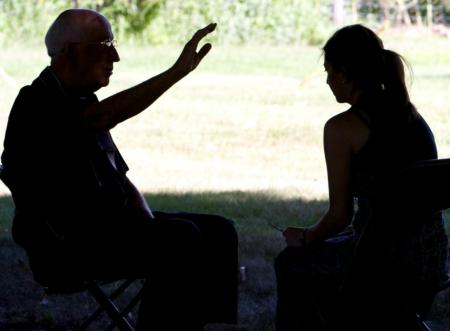Administering mercy: Facilitating forgiveness does not downplay sin
VATICAN CITY (CNS) -- Always, but especially during a Holy Year, the Catholic Church does everything possible to help Catholics repent of their sins, receive forgiveness and draw closer to God.
The Church's law and its canon lawyers are part of that effort, said Bishop Juan Ignacio Arrieta, secretary of the Pontifical Council for Legislative Texts and a prelate of the Apostolic Penitentiary, a Vatican court handling matters of conscience.
When Pope Francis announced the Holy Year of Mercy would open Dec. 8, he also said he would appoint "missionaries of mercy" to preach and teach about God's mercy. They will be given special authority, the pope said, "to pardon even those sins reserved to the Holy See."
Then, in a letter released at the Vatican Sept. 1, Pope Francis announced his decision "to concede to all priests for the jubilee year the discretion to absolve from the sin of abortion those who have procured it and who, with contrite heart, seek forgiveness for it." The first step, of course, is to recognize an action is a sin and confess it, expressing contrition and a willingness to do penance. Bishop Arrieta said the pope's action is designed to ensure that the path to penance and reconciliation is not blocked by a priest not having the full authority to offer absolution in the name of God and the Church.
In an interview with Catholic News Service June 2, before the pope's announcement about the extended faculties, Bishop Arrieta said the pope's mention of "reserved" sins in his holy year proclamation refers to actions that can bring with them automatic excommunication, for example, abortion when the person is aware of the penalty and commits the sin anyway.
The missionaries of mercy will have the "faculties" or authority to remove the excommunication and grant absolution in cases that normally require the intervention or permission of the local bishop or the Apostolic Penitentiary, he said.
For Vicki Thorn, founder of Project Rachel, a ministry promoting healing and forgiveness for those who regret an abortion, expanded opportunities for forgiveness are a crucial part of the Year of Mercy.
"For millions of women, in their hearts abortion is the unforgivable sin," Thorn said during a telephone interview from her home in Milwaukee in June."This sin holds people hostage," she said.
"Some women keep coming back confessing the same sin" over and over, Thorn said. "She knows she has committed a sin -- the hard part is to convince her of God's mercy."
"All sins can be forgiven," Bishop Arrieta said, but more serious sins are also considered crimes under canon law and carry penalties. In order to receive absolution, a person must be allowed to receive the sacraments, which he or she cannot do while under the penalty of excommunication.
When a woman goes to confession seeking absolution for abortion, "the problem is not the sin, but the penalty, which prevents the reception of any sacrament," Bishop Arrieta said, which is why Pope Francis is making special global provisions.
In most dioceses of the United States, England and several other countries, the bishops regularly give all their priests the faculties to grant absolution for abortion. But in other places, like Italy, such permission is given only on special occasions.
"Sin is sin," Bishop Arrieta said, and the offenses that can carry automatic excommunication are especially serious, but a Holy Year is an especially serious time of grace.
"The pope is not saying abortion is no longer important. No. It's important," the bishop said. "It is the most frequent cause of excommunication."
By granting a special faculty to priests during the Year of Mercy, he said, Pope Francis is trying to balance a desire "to facilitate reconciliation as much as possible" while also "trying to form consciences" about the seriousness of abortion.



















